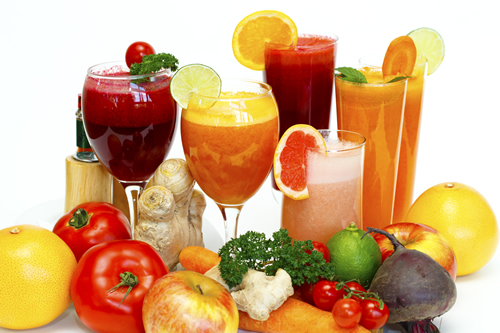Juice HACCP
 Missouri has numerous orchards and vineyards that are interested in providing juices to other commercial operations. Juice is defined as the aqueous liquid expressed or extracted from one or more fruits or vegetables, purees of the edible portions of one or more fruits or vegetables, or any concentrates of such liquids used as an ingredient in beverages. Due to the history of juices being related to severe foodborne illness cases, these businesses have some additional requirements they have to follow. The Code of State Regulations (CSR) adopted the section of the Code of Federal Regulations that addresses the requirements needed to reduce the risks.
Missouri has numerous orchards and vineyards that are interested in providing juices to other commercial operations. Juice is defined as the aqueous liquid expressed or extracted from one or more fruits or vegetables, purees of the edible portions of one or more fruits or vegetables, or any concentrates of such liquids used as an ingredient in beverages. Due to the history of juices being related to severe foodborne illness cases, these businesses have some additional requirements they have to follow. The Code of State Regulations (CSR) adopted the section of the Code of Federal Regulations that addresses the requirements needed to reduce the risks.
In addition to following the current good manufacturing practices (cGMPs) these operations must implement specific plans that help reduce the risks in producing them called HACCP systems. HACCP is an acronym for Hazard Analysis Critical Control Point. A HACCP system is an approach to food safety that methodically looks for biological, chemical and physical hazards at each step of the preparation of a food. Once the hazards are determined, the system applies established practices to eliminate or reduce the hazards at the most critical points of the process. The National Advisory Committee on Microbiological Criteria for Food has outlined the seven principles used to develop HACCP plans.
Principles:
- Conduct a hazard analysis - the operator conducts a thorough look at each step of the process for biological, chemical and physical hazards.
- Determine critical control points (ccp) - the operator determines the points in the process where control of hazards is critical.
- Establish critical limits - the operator develops a standard, which is used to distinguish between safe and unsafe food for each ccp.
- Establish monitoring procedures - the operator-planned series of observations or measurements to tell whether the critical limit is under control.
- Establish corrective actions - a series of actions to be taken if the operator determines that the critical limit has not been maintained.
- Establish verification procedures - a plan of activities developed by the operator to assure that the HACCP system is being applied properly.
- Establish record-keeping and documentation procedures - collection and maintenance of the information necessary to prove the system is working properly.
The bottling operation for juices will also have to comply with the bottling requirements explained in the bottled beverage section linked on the main Manufactured Food Program web page. The only exception to the HACCP system requirements is in a retail food operation with special labeling requirements.
Contact the Missouri Department of Health and Senior Services, at the District office in your area to discuss the requirements if you are considering starting a juice operation. To see additional information for manufactured food regulations for more advanced processes use the links on the main Manufactured Food Program web page.
